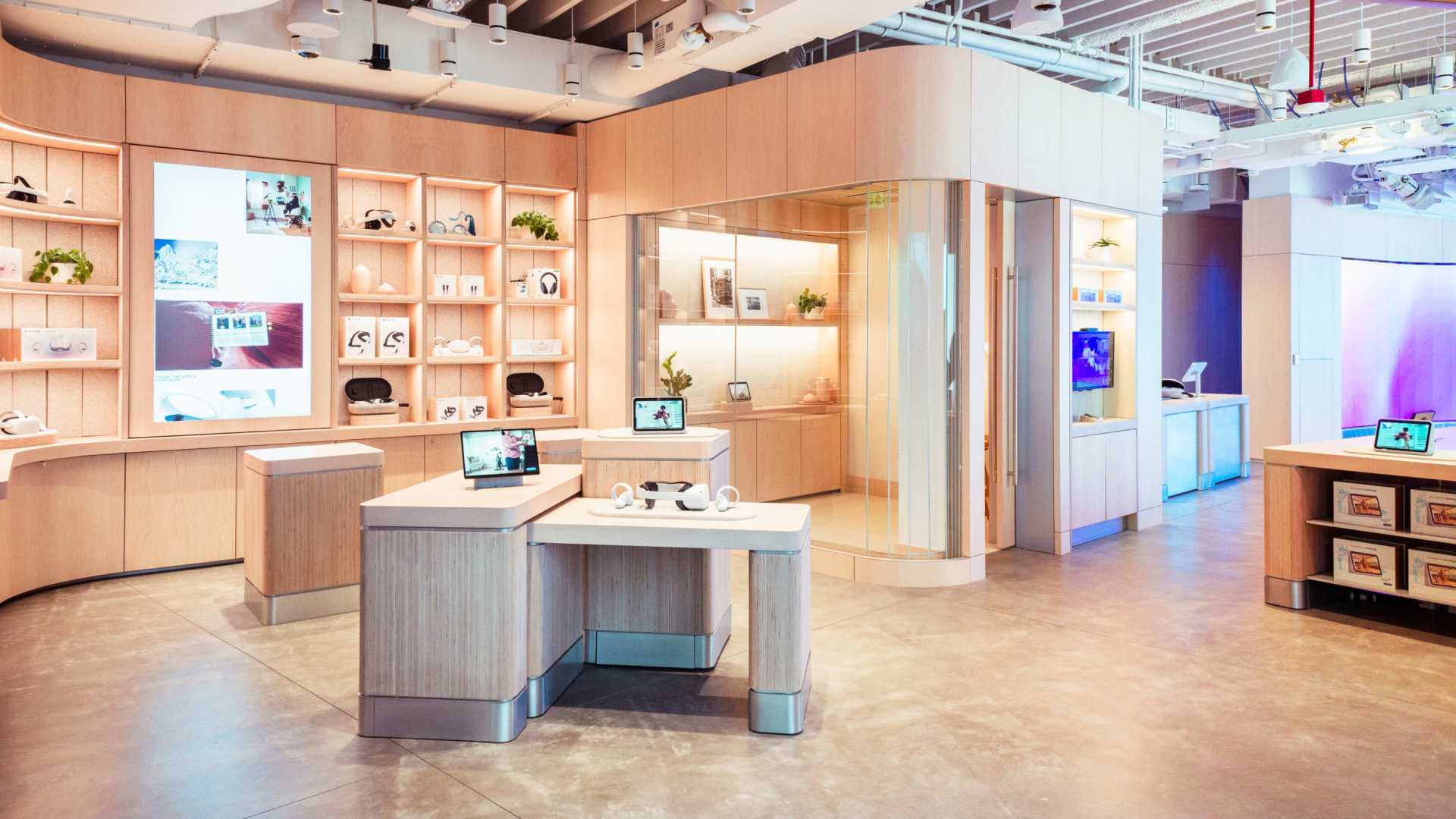Facebook’s parent company Meta recently opened a brick-and-mortar store in California to showcase its metaverse-related products. The company is looking to see a return on its investment in VR that netted a $10 billion loss in 2021. Meta continues to invest in AR and VR as the firm attempts to build the metaverse – a future that Mark Zuckerberg believes in so strongly that the company name was changed last year to reflect this new emphasis.
The Meta Store allows people to get hands-on experience with Meta’s product line. The showroom includes demonstration areas for their Portal video chat devices, Quest VR headsets spotlighting popular titles like Beat Saber, and Ray-Ban Stories – their first smart glasses product through a partnership with Ray-Ban as they delve into the territory of wearables. Portal and Quest products are available for purchase in store, but customers will still need to order Stories through Ray-Ban’s website.
Meta follows in the footsteps of other tech giants in opening physical retail stores. Apple has roughly 270 Apple Stores across the US, while Google recently announced opening their second store in New York City to sell their products, including Google Pixel smartphones, Pixelbooks, Fitbit wearables, and Nest smart home devices. Amazon has been experimenting with physical retail for years, including its concept for a cashierless convenience store called Amazon Go. However, the ecommerce behemoth recently announced that it’s closing 68 physical retail stores, including Amazon Books and Amazon 4-star locations across the United States and United Kingdom.
Virtual reality and augmented reality are still not widely owned or even known about. According to Interpret’s New Media Measure®, only about 8% of US consumers own a VR headset and 3% own any AR device, and there are a significant number of people that are completely unaware or know very little about these technologies. Meta hopes the physical store can give people first-hand exposure and better understanding of what VR/AR can offer, and how they contribute to the metaverse.
Meta remains the market leader in the still small and growing virtual reality and augmented reality market. Of VR headset owners, 52% own a Meta (formerly Oculus) brand headset (either the standalone Quest or PC-connected Rift headsets). There is ample room for growth. Only 21% and 14% express ownership and/or significant familiarity with virtual reality or augmented reality, respectively. Meta is aiming to further expand the market with four new VR headsets planned for 2024, including a new, high-end model called Project Cambria that could ship as early as this September.






